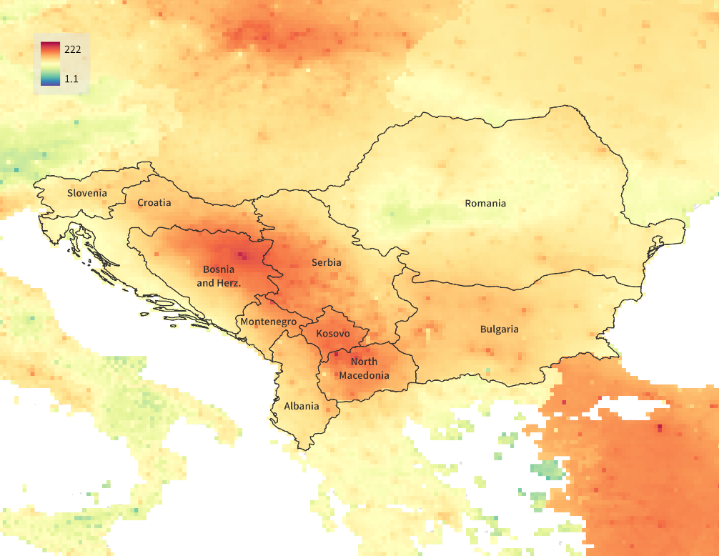
You are here
New State of Global Air special report on air quality and health in Southeast Europe
|
Across the region, air quality remains a key concern. More than 95% of the population in the region lives in areas where levels of fine particulate matter (PM2.5) exceed the World Health Organization (WHO) annual guideline value of 5 μg/m3. Further, one in ten deaths in the region can be linked to air pollution.
Coal remains a primary source of energy across the region and drives the relatively larger burden of disease from pollutants like PM2.5 compared to other European regions. While improvements are being made in some countries, the availability of air quality data remains limited, and the evidence on the health effects of air pollution is not routinely considered for policy decisions.
Data from this report comes from the Global Burden of Disease study in 2019, from over 50 studies and risk assessments of air pollution and health in the region, as well as from a recent HEI-funded global assessment (McDuffie, et al, 2021) that examines major air pollution sources and their associated health impacts.
A full set of data for this SoGA regional report can be found on the State of Global Air website. Interactive data and maps can be found here.
Earlier this year, HEI also released an interactive literature database containing many relevant research articles on air pollution and health and reports and policy briefs from across the region.


